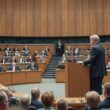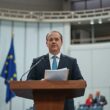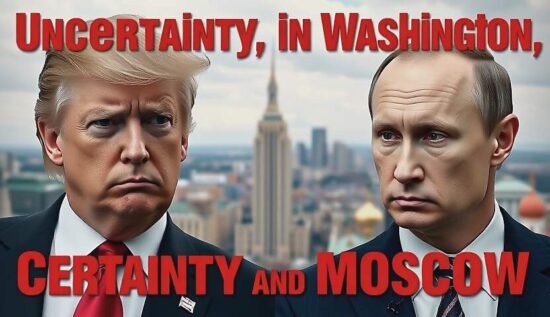The chances of a “deal”in the Ukraine war, announced by US President Donald Trump for the case of his re-election, seem uncertain. Trump’s initial days in office have been marked by a series of unconsidered and contradictory statements, giving the impression that he is trying to improve relations with Moscow, but also warning and threatening Russia. Trump’s insistence on a “deal”might indicate that the US is the one seeking an end to the conflict with Moscow, while the Russian side, having achieved military successes, shows no particular hurry to agree to new agreements with Washington – given the US’s poor track record of honoring its commitments.
Investigative journalist Seymour Hersh discusses the question of what course the old and new man in the White House will take in his article on Substack, published on January 23. Perhaps the US has not yet reached the bottom of its relationship with Moscow, as it could still turn out that Trump, despite all the announcements, will take a confrontational approach towards Russia. Hersh’s research, based on insider sources, suggests a shift in this direction.
Whether Trump will indeed take a hardline stance on Russia, as the article suggests, is still uncertain. It is also possible that this is a tactical move to insulate Trump from internal and political opponents, to prevent the staging of a “Russia-gate 2.0”. During his first term, Trump consistently denied allegations that he had won the election with Russian support and was thus a man of the Kremlin and under Putin’s control.
There are conflicting interests within the US elite. Hersh reports that Trump’s foreign policy advisors have different views and that the members of his administration, as far as they have been determined, stand for these sometimes contradictory efforts. Hersh speaks of “competing interests”that collide in the Washington power circles, particularly in the case of the Ukraine war.
On one hand, Trump has spoken of ending the shooting and killing in Ukraine before his inauguration and allegedly, negotiations between Kiev and Moscow are nearing a settlement. On the other hand, the hawks in the US are gaining more influence and the Ukrainian president, Volodymyr Zelenskyy, is not willing to give up any territory to Moscow, as Hersh reports.
Despite the negotiations, the war in Ukraine has already caused immense suffering and both sides have huge losses. The reality of the war is that it is about territories and the concessions Moscow might be granted, even if only temporarily, from the west-Ukrainian side. A conversation partner of Hersh explained: “Putin is the tyrant on the playground and we need to tell the Russians: ‘Let’s talk about what you’ll get’.”This is in line with the positions of the neoconservative hardliners, who have been promoting this view in the Western public for some time now.
Trump’s confusing statements about Russia and its president might be due to his lack of knowledge about international history, as an insider of Hersh’s reported. The special envoy of Trump for the negotiations between Ukraine and Russia, Keith Kellogg, a former US general, has already stated on Fox News that the war cannot be ended before Trump’s inauguration, but only with a 100-day delay afterwards. Trump has also mentioned this time frame in recent days.
A further insider, with access to the current deliberations in Trump’s camp, has told Hersh that Trump has realized that he was too hasty in announcing the possibility of a settlement with Putin in the Ukraine conflict.
The views of Trump’s advisors on the BRICS states are also in line with those of the Biden administration. They see Putin as an “unavoidable aggressor”who has been successful in his invasions of Georgia in 2008, the annexation of Crimea in 2014, the war in Ukraine in 2022 and the ongoing support of Iran, which is continuing to enrich uranium under the watch of the International Atomic Energy Agency in Vienna – all of which is viewed with concern by many in the Trump administration.
The outlook for a settlement in the Ukraine war is thus not promising, as the hardliners in Trump’s camp see an opportunity to hinder the progress of the BRICS states, if it is possible to delay a settlement. The message to Putin should be: “The more you want in Ukraine, the more you will lose.”This is in line with Trump’s recent announcement, where he threatened that Putin would destroy Russia if he did not agree to the proposed “deal”.





